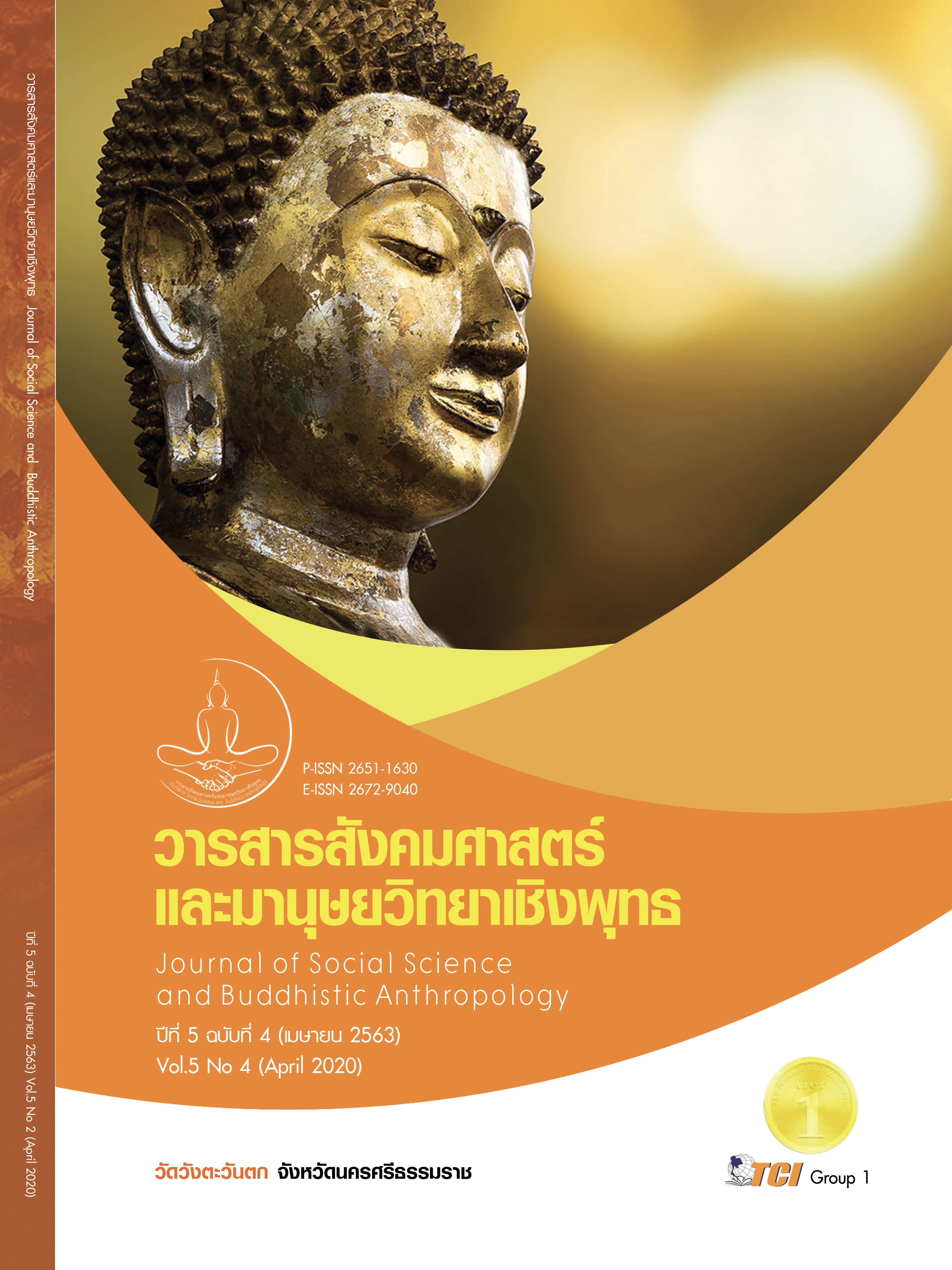THE DEVELOPMENT OF AN INTERNAL SUPERVISION MODEL THROUGH THE PROFESSIONAL LEARNING COMMUNITY FOR SUPERVISORS OF GRADUATE DIPLOMA PROGRAM IN TEACHING PROFESSION
Keywords:
Development of Model, Professional Learning Community, Excellent Supervision Clinique: ESC, Graduate Diploma Program In Teaching ProfessionAbstract
The objectives of this research were: 1) to study the current situation and the desirable situation of supervision for graduate diploma program in teaching profession, 2) to develop the internal supervision model using the professional learning community and 3) to evaluate efficiency in using the professional learning community activities for supervisor of graduate diploma program in teaching profession. The format used is Research and Development: R&D. The samples and target group were the educational supervisors and committees of graduate diploma program in teaching profession. The innovative instrument was the handbook for implementation of internal supervision model by using the professional learning community, process and evaluation by experts. In overall, the Propriety, Feasibility, and Utility were at the highest level. The instruments used for data analysis comprised Percentage, Mean, Standard Deviation, Priority Needs Index (PNImodified), efficiency of process and efficiency of product (E1/E2), and t-test for Dependent Samples. The research results were found that: 1) The current situation of internal supervision was found that, in overall, it was at high level and the desirable situation of internal supervision, in overall, was at the highest level. The PNImodified of the need for supervision model development consisted of 6 aspects, in overall, it was = 0.23, when considering each aspect, it was found that the aspect with highest urgent need for development included PNImodified= 0.29. 2) The internal supervision model by using Professional Learning Community process for supervisors of graduate diploma program in teaching profession, evaluated by scholars and experts, in overall, had the Propriety, Feasibility, and Utility at the highest level. The internal supervision comprised 6 steps namely: 1) Preparing, 2) Planning, 3) Implementing, 4) Reflecting, Improving, and Evaluating, 5) Reinforcing, and 6) Concluding and Reporting altogether of 25 learning activities were executed. 3) The efficiency of supervision model by using Professional Learning Community process was tried out in target group showed that: 3.1) The supervisors and program committees consisted of efficiency of process and efficiency of knowledge produced (E1 / E2) was = 83.10/93.10 3.2) The supervisors and program committees had their satisfaction on supervision model by using professional learning community process, in overall, was at high level, when considering each aspect, it was found that the aspect with highest level was the planning, followed by concluding and reporting and the aspect with lowest level was the reflecting, improving, and evaluating.
References
กระทรวงศึกษาธิการ. (2545). แนวทางการจัดทำหลักสูตรสถานศึกษา. กรุงเทพมหานคร: คุรุสภาลาดพร้าว.
ฉลาด จันทรสมบัติ. (2563). การพัฒนาบทเรียนโมดูล: นโยบาย ยุทธศาสตร์และแผนกลยุทธด้านการศึกษา (EDA6201) สำหรับนักศึกษาปริญญาโทหลักสูตร. วารสารศึกษาศาสตร์ มหาวิทยาลัยมหาสารคาม, 14(1), 69-75.
ฉลาด จันทรสมบัติ และคณะ. (2561). การพัฒนานวัตกรรมยกระดับผลสัมฤทธิ์ทางการเรียนของสถานศึกษา สังกัดสำนักงานเขตพื้นที่การศึกษาประถมศึกษานครพนม เขต 2. วารสารศึกษาศาสตร์ มหาวิทยาลัยมหาสารคาม, 12(3), 18-35.
ชัยยงค์ พรหมวงศ์. (2537). การทดสอบประสิทธิภาพชุดการสอน : เอกสารการสอนชุดวิชาเทคโนโลยีและสื่อสารการศึกษา หน่วยที่ 1-5. กรุงเทพมหานคร: มหาวิทยาลัยสุโขทัยธรรมาธิราช.
บุญชม ศรีสะอาด. (2556). วิธีการทางสถิติสำหรับการวิจัย เล่ม 1. (พิมพ์ครั้งที่ 5). กรุงเทพมหานคร: สุวีริยาสาส์น.
วรลักษณ์ ชูกำเนิด และคณะ. (2557). รูปแบบชุมชนการเรียนรู้ทางวิชาชีพครูสู่การเรียนรู้ในศตวรรษที่ 21 บริบทโรงเรียนในประเทศไทย. วารสารหาดใหญ่วิชาการ, 12(2), 123–134.
วิจารณ์ พานิช. (2555). วิถีสร้างการเรียนรู้เพื่อศิษย์ ในศตวรรษที่ 21. กรุงเทพมหานคร: มูลนิธิสดศรี-สฤษดิ์วงศ์.
สํานักงานเลขาธิการคุรุสภา. (2558). การดำเนินงานการรับรองปริญญาและประกาศนียบัตรทางการศึกษาเพื่อการประกอบวิชาชีพ. กรุงเทพมหานคร: สกสค. ลาดพร้าว.
สุจิตรา อินทร์เรืองศรี. (2554). การพัฒนาบทเรียนโมดูลวิชาชีวิตและวัฒนธรรมไทยสำหรับนักศึกษาระดับประกาศนียบัตรวิชาชีพชั้นสูงวิทยาลัยเทคนิคอุตสาหกรรมยานยนต์. ใน วิทยานิพนธ์ครุศาสตรมหาบัณฑิต สาขาการจัดการเรียนรู้. มหาวิทยาลัยราชภัฏพระนครศรีอยุธยา.
สุพี ดอนไพรปาน. (2556). การพัฒนาบทเรียนโมดูลเรื่องปรัชญาของเศรษฐกิจพอเพียง สำหรับนักเรียนมัธยมศึกษาปีที่ 2. ใน วิทยานิพนธ์วิทยาศาสตรมหาบัณฑิต สาขาวิชาครุศาสตร์เกษตร. สถาบันเทคโนโลยีพระจอมเกล้าเจ้าคุณทหารลาดกระบัง.
David, B. (1997). Transformational Leadership and Organizational Learning: Leader Actions that Simulate Individual and Group Learning. Dissertation Abstracts International, 58(3), 693.
DuFour, R. et al. (2006). Learning by Doing A Handbook for Professional Learning Communities at Work. Indiana: Solution Tree Press.









